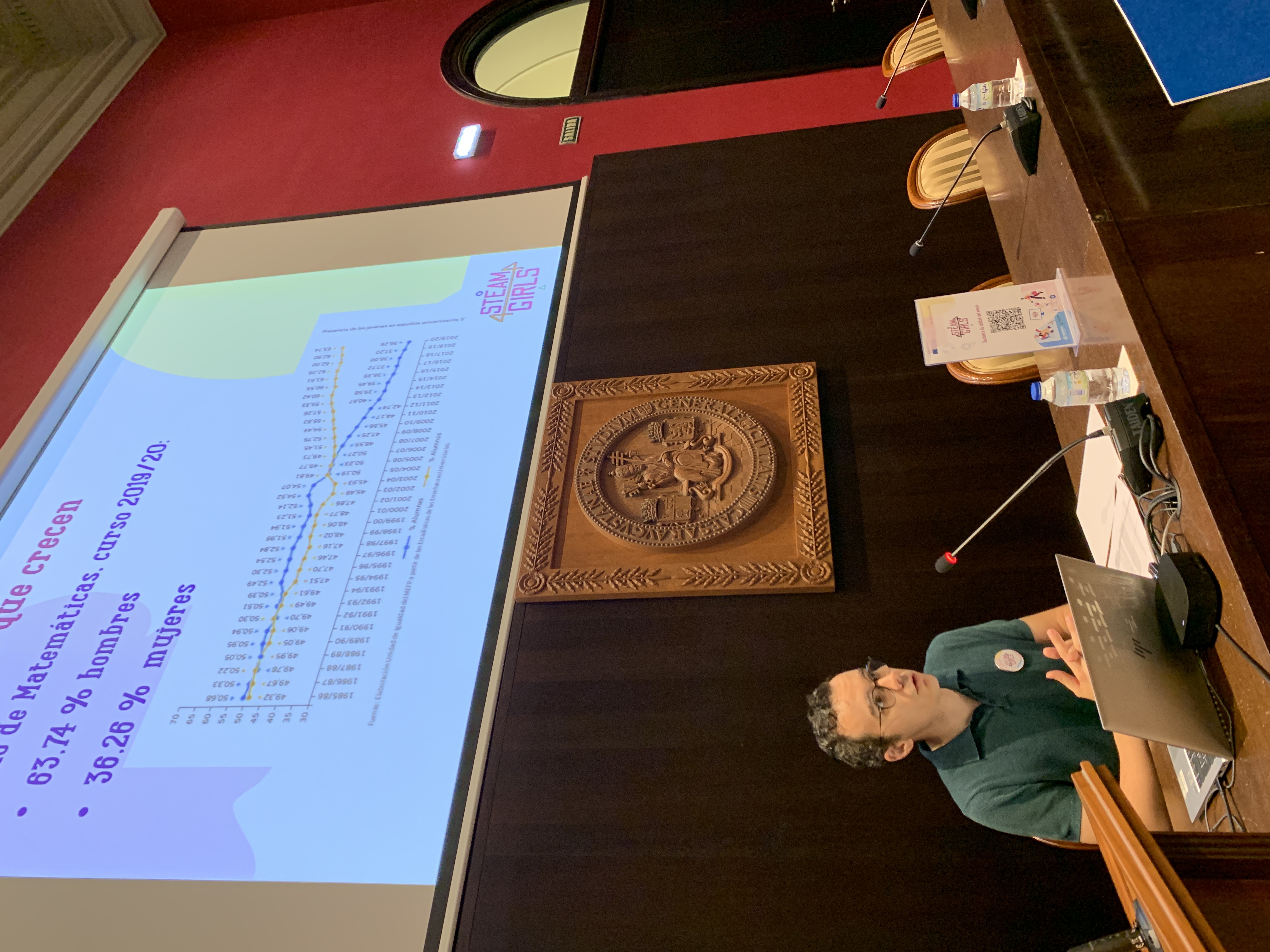STEAM4Girls
Institution
Esciencia, Esquare, Unizar, ITLDV and IAAD.
Institution Typology
Other
Country
Spain
Stakeholders involved
Teachers, future teachers, students etc
Summary
Steam4Girls was an educational project aimed at promoting vocations in STEAM subjects and coding, especially among girls aged 12 to 18. By equipping this group with digital skills, the gamified methodology sought to show that these fields are not only open to everyone, but also present great opportunities for learning.
CONTEXT AND OBJECTIVES
Problem addressed or learning needs
The project had the following objectives:
Raise awareness through understanding the situation of women in science.
Create educational tools that help build awareness and promote interest in STEAM fields, particularly among young women and girls, encouraging greater inclusion.
Encourage participants to become active members of society by understanding social issues such as the gender gap in STEAM fields.
Increase the visibility of women scientists, focusing on the impact of young women in research.
Types of enhanced competences
The skills developed throughout the program were diverse, as it explored science from a feminine perspective to highlight the valuable contributions of this group throughout the history of science and coding. It covered all domains of STEAM subjects and coding.
METHODS, STRATEGIES AND TOOLS
Subjects involved
Humanities, Technologies\Engineering, Math, Civic education, Arts
Duration and timeline of implementation
The project started on 01/12/2022 and ended on 30/11/2024. With the tools developed, it reached more than 500 students in 25 schools across different European countries.
Strategies and activities
A study on gender issues in STEAM fields was conducted.
Resources and educational tools were developed based on the findings.
These tools were integrated into a virtual platform.
A European communication and dissemination campaign was launched.
Material Sources
Videos, escape games, a digital platform, infographics, etc.
Methodology
Team Work, Cooperative Learning, Digital Storytelling, Technology-Enhanced Active Learning (Teal)
IMPACT AND RESULTS
Impact
Trained teachers: 63
Schoolchildren aged 12–18 participating in classrooms: 500
Participants who played the game: 2000
Interactions on the games/platform: 100,000
Face-to-face impact during Multiplier Events: 200
Observed Benefits
One of the key outcomes of this project was the Europe-wide dissemination of the opportunities that exist in STEAM subjects and coding for everyone, regardless of gender or other conditions. Given the initial situation identified in the baseline study and the experience of the partners, sharing this message with European society was a key step in determining the success of the initiative.
Challenges Faced
As with any European project, one of the main challenges was ensuring that content had a unified impact across all participating countries. However, the partners’ open attitude and prior experience in similar initiatives helped to mitigate this risk.
LESSONS LEARNT AND RECOMMENDATIONS
Key Success Factors
Several factors contributed to the project's success, but if one had to be highlighted, it would be the consortium's ability to work together towards common goals. Strengthening these relationships through regular online and in-person meetings only supported this direction.
Future Improvements
The methodology implemented throughout the program—adopting and integrating digital tools such as gamification into STEAM education—was undoubtedly an improvement that could be applied to future initiatives. It proved to be successful among European students for its engaging and accessible way of presenting content.
Recommendations
Key recommendations for future initiatives include:
Involve all stakeholders in the educational process—from future teachers and policymakers to students.
Gamify education to make learning more engaging for students.
Coordinate dissemination efforts to maximize impact and reach diverse audiences.

